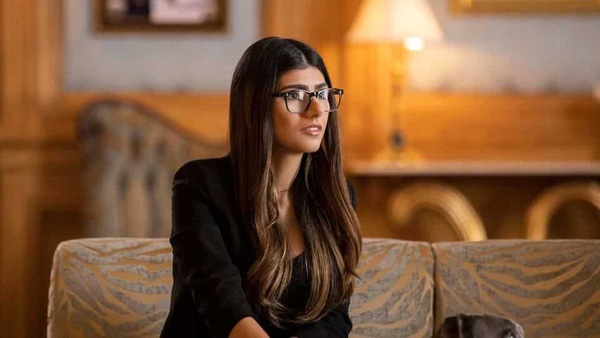'Ramy' review: Is this TV's most essential comedy?

-Mia Khalifa on the new season of 'Ramy'
- Raja Sen
LiveMint
Last Updated: 02.45 PM, Aug 21, 2020
Porn stars can judge you for knowing who they are. In an episode of the increasingly insightful series Ramy—season 2, episode 4, slyly titled miakhalifa.mov—Mia Khalifa, a former pornographic performer, looks up the show’s scruffy leading man and narrows her eyes. Khalifa, a Lebanese-American, has received death threats and been publicly disowned by her Muslim parents for performing on-camera sex wearing a hijab. On Ramy, she explains how the people and nations that rage hardest against her are also the ones most keenly devouring her videos. “Have you clicked on me?” she asks. Young Ramy, true to form, doesn’t have an answer.
This is a comedy that questions. Ramy, co-created by (and starring) Egyptian-American comedian Ramy Youssef, is a sitcom that examines the idea of being a Muslim in the world today. Both seasons of the provocative Hulu series are now streaming in India on Amazon Prime Video. The first season, which I applauded here last year, showed title character Ramy muddle through guilt and self-doubt, and the superior second season demonstrates his attempt to grow. As protagonists go, Ramy is a sad little underachiever who means well but often gives in to unwise impulses, and the second season is about his wholehearted attempt to evolve into a better Muslim.
For this he needs a mentor. Oscar-winning Moonlight star Mahershala Ali plays a Sufi sheikh, a sage with the presence of a rock star who, calmly and assuredly, makes miracles appear like acts of faith and patience. He is the Muslim ideal, a man who understands the importance of following not the letter of the scriptures, but their purpose. Sadly, it feels revolutionary to watch a TV comedy make room for this peaceful, forgiving sheikh—a man who makes and offers hot chocolate to angry white picketers outside his mosque, then smiles when he sees them find the marshmallows.
Ramy is immediately, understandably smitten by the sheikh—a godman-crush, so to speak—but proves all too eager to rise in his estimation, crossing lines recklessly in his trademark way. We all know people who end up spending a lot of their time apologizing, and Ramy is one of those. There is nothing ideal about this protagonist.
Yet he displays faith. As a series, Ramy probes the importance of faith itself. It points to the way some seas part just in time for one to get through, and while everything may indeed be a coincidence, there is just enough doubt: allowing room for each of us to let the other believe what they may.
In a standout episode, Ramy’s sister Dena, a law student waiting for news of a scholarship, watches her mother pray for her. Dena, played by May Calamawy, doesn’t believe prayer can alter what is coming to her, but she suddenly—and uncharacteristically—starts overthinking rituals and superstitions, wondering how badly she could be affected by the evil eye. She is told it is amplified by Facebook, exposing our happiness to those who wish us ill. As Dena embraces many a ridiculous-sounding solution while grappling with a crisis, it is hard not to relate, both to her desperation and to her annoyance with herself.
On the other hand, Ramy’s mother Maysa (Hiam Abbass from Succession) is sure about her faith. She is, however, less certain about how to deal with a man in a dress who identifies as “they”. It flummoxes this lady from another time. She is sincerely trying to become an American citizen for the sole purpose of voting, to help keep the current president out of office. She realizes she has misgendered someone and questioned their identity but she passionately believes that all marginalized people—which includes the trans community and the Muslims—need to stick together in order to boot him out.
Ramy, like any religious text, is hard to predict. Its parables go around in amusing circles before zeroing in on their points, and the fallible but earnest leading man appears more clueless about what will follow than we are. The mighty light Mahershala Ali shines on this casual sinner nearly blinds him. It is hard not to be awed by the sheikh’s equanimity, especially in the face of Ramy’s chaos. “Islam,” the sheikh says in a lovely metaphor, “is like an orange.” Ramy may vainly be trying to find a rhyme for it.
The show is incredibly well-observed. One Muslim gets annoyed with a white man who pronounces the word “Muslim” with a Z-sound in the middle. Another, who believes he has casino-conquering luck but considers it haram to actually gamble, helps a stranger win a jackpot on a slot-machine. Yet another sits back, and asks a man who prays professionally—whom he describes as the “LeBron James of praying”—to pray on behalf of Ramy and himself. In the middle stands Ramy, gradually realizing that the world can’t be entirely broken into good or bad, that the very ideas of halal and haram are subject to context.
Religion can feel absurd but its arbitrariness is—ideally—compensated for by intent. The idea of becoming a better Muslim is exactly the same as becoming a better Hindu or becoming a better philosopher or becoming a better comic-book fan. The point of this series may not be to better ourselves, but, by observing the remarkable empathy it extends to its characters and their limitations, it may help us find more flattering facets to the people around us. We must have faith in faith.
Stream of Stories is a column on what to watch online. Raja Sen is a film critic and the author of The Best Baker In The World (2017), a children’s adaptation of The Godfather.
@rajasen
Subscribe to our newsletter for top content, delivered fast.
